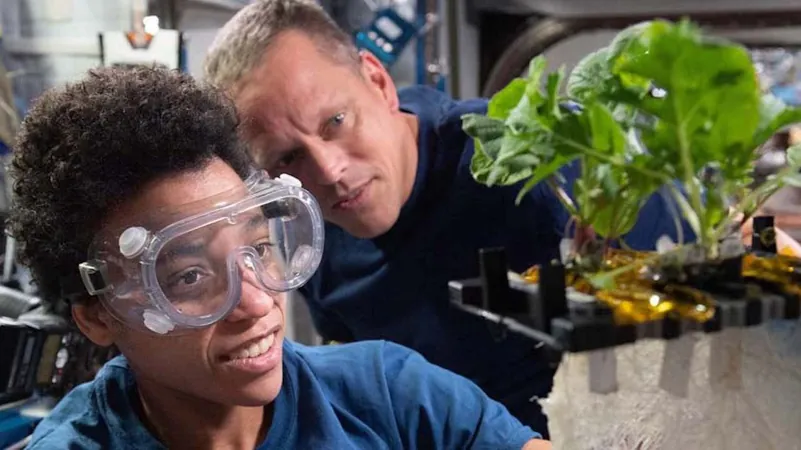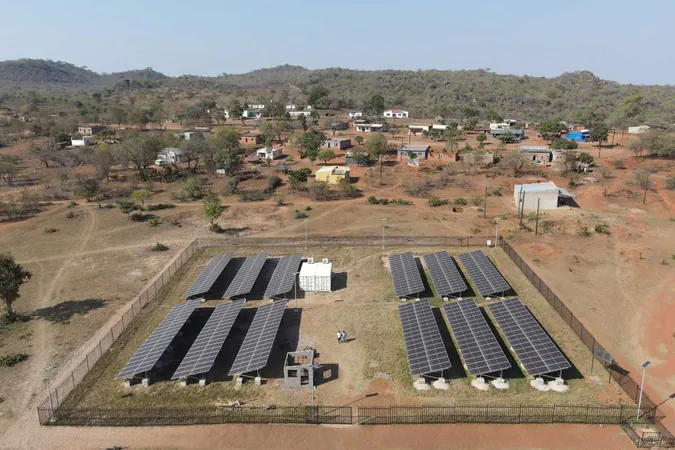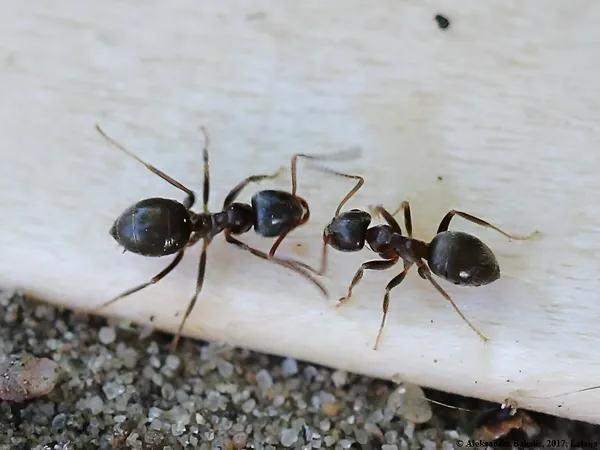
Exploration of Space-Life Science: NASA's Latest Research Advances Unveiled!
2024-09-17
Exploration of Space-Life Science: NASA's Latest Research Advances Unveiled!
In a recent publication, NASA has showcased impactful research stemming from its Space Life Science initiative, highlighting significant studies that delve into the complexities of life in microgravity environments. These findings not only push the boundaries of our understanding of biology in space but also inform potential applications for health and science back on Earth.
Key Research Highlights:
1. Microbial Interactions in Space
A groundbreaking study led by Nastasi et al. explored the factors affecting the microbiome of dust collected from the International Space Station (ISS). Their research indicates that varying moisture levels can dramatically influence the microbial community, shedding light on how space environments might affect health. This could be crucial in ensuring the wellbeing of astronauts on long-duration missions. [Link to the study]
2. Counteracting Microgravity Effects
Kramer and colleagues examined the hypothesis that artificial gravity could mitigate headward fluid shifts, a common concern for astronauts in microgravity. Their research suggests that artificial gravity techniques could offer an effective countermeasure during spaceflights, potentially preserving astronaut health in space. [Link to the study]
3. Simulated Microgravity Studies
The effects of simulated microgravity on oral bacteria were investigated by Rice and Davis, who employed confocal microscopy to analyze oral streptococcal biofilms. The results could provide insight into how microgravity impacts oral health, an often-overlooked aspect of astronaut care. [Link to the study]
4. Cognitive Research in Space
A study from Wieg et al. examined the cognitive effects of simulated galactic cosmic radiation. Their findings indicate that factors such as ApoE genetic status and environmental conditions can influence cognitive performance, raising concerns for long-term space missions. [Link to the study]
5. Precision Medicine Applications
In the realm of cardiac health, Huang et al. discussed advancements in ischemic heart disease diagnosis using point-of-care myocardial contrast echocardiography. Their pioneering work signals a step forward in precision medicine, leveraging advanced imaging technology that could revolutionize cardiovascular care for astronauts and civilians alike. [Link to the study]
6. Bacterial Dispersal Studies
Research by Grönroos and team utilized patterns of shared bacteria to understand microbial dispersal in varied living environments, revealing implications for immune system priming in humans. Such studies emphasize the importance of microbial communities and their role in maintaining health both in space and on Earth.
As we venture deeper into space exploration, it's essential that we understand the biological implications of life beyond our planet. NASA's ongoing studies aim to address the challenges posed by deep-space missions and enhance the health and safety of astronauts.
Whether it's advancing our knowledge about microbial life, safeguarding human health in space, or developing new technologies for medical procedures, NASA's research is paving the way for a future where space travel is a viable option for humanity. Stay tuned for more exciting updates from the frontier of space exploration!





 Brasil (PT)
Brasil (PT)
 Canada (EN)
Canada (EN)
 Chile (ES)
Chile (ES)
 España (ES)
España (ES)
 France (FR)
France (FR)
 Hong Kong (EN)
Hong Kong (EN)
 Italia (IT)
Italia (IT)
 日本 (JA)
日本 (JA)
 Magyarország (HU)
Magyarország (HU)
 Norge (NO)
Norge (NO)
 Polska (PL)
Polska (PL)
 Schweiz (DE)
Schweiz (DE)
 Singapore (EN)
Singapore (EN)
 Sverige (SV)
Sverige (SV)
 Suomi (FI)
Suomi (FI)
 Türkiye (TR)
Türkiye (TR)